Faculty Council
Leading Data Science researchers and program representatives to drive DSI mission and guide DSI operations with four Working Groups.

Blue and Gold Distinguished Professor, Geography & Spatial Sciences and Biden School of Public Policy & Administration
saleem@udel.edu
https://www.ceoe.udel.edu/our-people/profiles/saleem
environmental planning, applied geography, international environmental policy, extractive industries and society, mineral governance
Saleem H. Ali’s research interface with the Data Science Institute involves using data for improving science diplomacy between countries as well as between corporations and communities. As a member of the United Nations International Resource Panel, he has worked with geoscience data and metrics of resource efficiency across the mineral supply chain. His research also considers how qualitative data can be more effectively used in concert with quantitative data in community communication to mitigate conflicts. Professor Ali received his doctorate in environmental planning from MIT, Masters in Environmental Studies from Yale University and a Bachelors in Chemistry and Environmental Studies from Tufts University (summa cum laude).
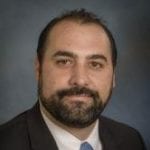
Co-Chair, Research Working Group
Professor, Political Science & International Relations
bagozzib@udel.edu
https://www.benjaminbagozzi.com/
Text-as-Data; Politics; Environment; Social Science; Violence
Benjamin Bagozzi is a Professor in the Department of Political Science & International Relations at UD. He also leads the Social Analytics Data Lab (SADL) and is Assistant Director of the Master of Science in Data Science program. His primary areas of specialization are political methodology and international relations. Within international relations, his research and teaching interests include environmental politics, human rights, and the study of political violence. Methodologically, he teaches and conducts research in computational social science, text-as-data, and political event data. His research has been funded by the National Science Foundation, the Knight Foundation, and the Department of Defense, among others.
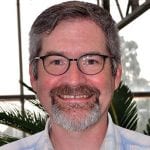
Professor, Entomology and Wildlife Ecology
jbuler@udel.edu
https://canr.udel.edu/faculty/buler-jeffrey/
Ecological modeling, Remote sensing, Ornithology
Jeff Buler is a Professor of Wildlife Ecology at the University of Delaware (UD). He earned his Ph.D. degree in biology from the University of Southern Mississippi and M.S. degree in wildlife from Louisiana State University. He established the Aeroecology Program at UD in 2011 and has lead the development of novel methods and software to use the national network of weather surveillance radars to study the broad-scale distribution, movement, and habitat use patterns of birds, insects, and bats. His general research interests include 1) modeling wildlife species distributions and habitat relationships over broad geographic scales, 2) assessing wildlife response to habitat restoration/management and anthropogenic development, and 3) studying the behavior and ecology of birds during migration.
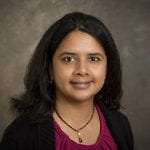
Associate Professor, Computer & Information Sciences
schandra@udel.edu
https://www.eecis.udel.edu/~schandra/
High Performance Computing, Machine Learning, Interdisciplinary Science
Sunita Chandrasekaran is an Associate Professor with the Department of Computer and Information Sciences at the University of Delaware, USA. She is also a computational scientist with Brookhaven National Laboratory. She received her Ph.D. in 2012 on Tools and Algorithms for High-Level Algorithm Mapping to FPGAs from the School of Computer Science and Engineering, Nanyang Technological University, Singapore. Her research spans High Performance Computing, exascale computing, parallel programming, benchmarking and data science. Applications of interest include scientific domains such as plasma physics, biophysics, solar physics and bioinformatics. She is a recipient of the 2016 IEEE-CS TCHPC Award for Excellence for Early Career Researchers in High Performance Computing and other SPEC HPG awards.

Professor, Business Administration
bchen@udel.edu
https://lerner.udel.edu/faculty-staff-directory/bintong-chen/
Director of IFSA and FSAN program
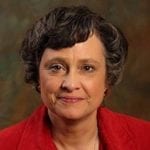
Assistant Professor, School of Nursing
sconaty@udel.edu
https://sites.udel.edu/nursing/susan-conaty-buck-dnp-aprn-fnp-c/

Professor, Behavioral Health and Nutrition Sciences
Graduate Director, Health Behavior and Nutrition Sciences
davey@udel.edu
https://www.udel.edu/academics/colleges/chs/departments/hbns/faculty/adam-davey/
Human Aging, Diabetes Mellitus, Chronic Kidney Disease, Biostatistics, Bioinformatics
Adam Davey is a Professor of Health Behavior and Nutrition Science. He is also Affiliated Faculty for the Center for Bioinformatics and Computational Biology. Previously, he served as Associate Dean for Research in the College of Health Sciences. Prior to joining the University of Delaware, Dr. Davey was Professor and Founding Chair in Temple University’s Department of Epidemiology and Biostatistics within the College of Public Health and held a secondary appointment in the Center for Data Analytics and Biomedical Informatics in Temple’s College of Science and Technology. Davey also brings more than 20 years of experience with biomedical data management and analysis.

Associate Professor, Applied Economics and Statistics
sding@udel.edu
https://sites.google.com/a/udel.edu/sding/
Shanshan Ding is an Associate Professor of Statistics in the Department of Applied Economics and Statistics at the University of Delaware. She is a faculty council member at the Data Science Institute, and an affiliated faculty member with the Center for Bioinformatics and Computational Biology and the Center for Experimental and Applied Economics at UD. Prior to joining UD, She received her PhD degree in Statistics from the University of Minnesota-Twin Cities. Her research interests include dimension reduction, high dimensional and big data, statistical machine learning, statistical foundations of data science, application problems stemming from online learning, network data, bioinformatics, neuroimaging, biomedical and environmental sciences.
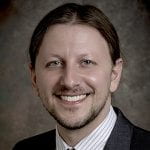
Associate Professor, Public Policy & Administration
Associate Professor, Physics & Astronomy
Resident Faculty Representative, DSI Faculty Council
gdobler@udel.edu
https://www.bidenschool.udel.edu/news/Pages/urban-observatory-greg-dobler.aspx
Urban Science; Data Science; Complex Systems
Dr. Dobler is currently the Director of the “Urban Observatory” (UO; cuspuo.org), a multi-institutional facility designed to study complex urban systems through remote imaging. His expertise is in image analysis, computer vision, time series, statistical analysis, and mathematical modeling of large data sets. As the Director of the UO, he applies data analysis techniques from astronomy, computer vision, and machine learning to images of urban skylines to study air quality, energy consumption, lighting technology, public health, and sustainability. In addition, he has led data analysis projects related to equitable distribution of greenspaces, mapping long timescale economic trends across cities, and surrogate measures for traffic safety. Prior to his work on urban systems, Dr. Dobler was an astrophysicist specializing in multi-wavelength, full sky data sets from radio to gamma-ray energies, and led the discovery of one of the largest structures in the Milky Way.
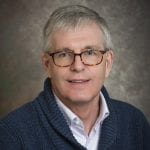
Professor, Electrical & Computer Engineering
Director, Center for Data-intensive and Computational Science (DiCoS),
eigenman@udel.edu
http://www.ece.udel.edu/research/by-faculty.Rudolf.Eigenmann.html
high-performance computing, parallel programming methods and tools
Rudolf (Rudi) Eigenmann came to the University of Delaware in2017 from Purdue University, where he was a Professor in the School of Electrical and Computer Engineering. From 2013-2017, he has also served as Program Director in the National Science Foundation’s Office of Advanced Cyberinfrastructure. His core research interests include optimizing compilers, programming methodologies, tools, and performance evaluation for high-performance computing, as well as the design of cyberinfrastructure. Dr. Eigenmann received his Ph.D. in Electrical Engineering/Computer Science from ETH Zurich, Switzerland.

Professor, Accounting and Management Information Systems
xfang@udel.edu
http://dalab.info
Machine Learning/AI, Business Analytics, Data Science, Social Network Analytics, FinTech
Xiao Fang is Professor of MIS and JPMorgan Chase Senior Fellow at Lerner College of Business & Economics and Institute for Financial Services Analytics, University of Delaware. His current research focuses on financial technology, social network analytics, and health care analytics, with methods and tools drawn from reference disciplines including Computer Science (e.g., Machine Learning) and Management Science (e.g., Optimization). Professor Fang co-founded INFORMS Workshop on Data Science in 2017. He currently serves as an Associate Editor for INFORMS Journal on Data Science.

Associate Professor of Operations Management, Business Administration
ajf@udel.edu
http://www.causact.com
Bayesian Data Science
Adam Fleischhacker is an Associate Professor of Operations Management at the University of Delaware. After a highly successful industry career designing supply chain software, he earned his Ph.D. in supply chain management from Rutgers University in 2009. His current research focuses on unifying narrative, math, and code to accelerate Bayesian-based analytics workflows. He has made these concepts student-accessible in his textbooks, “A Business Analyst’s Introduction to Business Analytics”, and “Persuasive Python” (forthcoming).
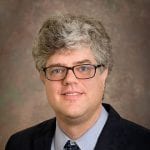
Co-Chair, Networking & External Relations Working Group
Annie Jump Cannon Professor of Astronomy, Physics and Astronomy
Associate Director, Data Science Institute
gizis@udel.edu
http://www.physics.udel.edu/~gizis/
astronomy, physics, astrophysics, LSST
John Gizis is an observational astronomer in the Department of Physics and Astronomy and co-chair of the Large Synoptic Survey Telescope (LSST) Stars, Milky Way and Local Volume science Collaboration. The LSST will collect 15 terabytes of optical astronomy data per night and a key example of how astronomy is being transformed by the need for new data science methodology.

Professor and Chair, Epidemiology
horney@udel.edu
https://www.udel.edu/faculty-staff/experts/jennifer-horney/
Disaster; Public Health; Epidemiology; Outbreaks and Pandemics
Jennifer Horney is Professor and Founding Chair of the Department of Epidemiology. Dr. Horney’s research focuses on measuring the health impacts of disasters. She received her PhD in Epidemiology and MPH from the UNC at Chapel Hill. She has led interdisciplinary research projects funded by the NIEHS, NSF, the National Oceanic and Atmospheric Administration, the Department of Homeland Security, the U.S. Department of Agriculture and other federal, state, and local agencies. Dr. Horney was a member of a team of public health practitioners who responded to Hurricanes Isabel, Charley, Katrina, Wilma, Irene, and Harvey where she conducted rapid assessments of disaster impact on the public health of individuals and communities. She has also provided technical assistance to public health agencies globally around disasters, emerging infectious disease outbreaks, and pandemic influenza planning and response.

Centennial Term Professor for Excellence in Research and Education, Chemical and Biomolecular Engineering
Professor, Materials Science and Engineering
arthij@udel.edu
https://www.che.udel.edu/people/faculty/arthij/
Soft Materials, Polymers, Computational Materials Design
Arthi Jayaraman is a Professor in Chemical and Biomolecular Engineering and Materials Science and Engineering at the University of Delaware. She is also an editor for two ACS journals – Macromolecules and ACS Polymers Au. She received her Ph.D. in Chemical Engineering from North Carolina State University and conducted her postdoctoral research in Materials Science and Engineering at UIUC. After holding the position of Patten Assistant Professor in Chemical and Biological Engineering at University of Colorado (CU) at Boulder, in 2014 she joined UD. Her research expertise is in the development of modeling, theory, simulation, and machine learning methods and their application to study synthetic and biologically relevant soft materials. Her research has been recognized with the AIChE COMSEF Impact Award (2021), American Physical Society (APS) Fellowship (2020), Dudley Saville Lectureship at Princeton University (2016), ACS PMSE Young Investigator (2014), AIChE COMSEF division Young Investigator Award (2013), CU Provost Faculty Achievement Award (2013), and the DOE Early Career Research Award (2010).

Co-Director, Center for Research in Education & Social Policy
Professor, Human Development and Family Sciences
karpyn@udel.edu
https://www.cehd.udel.edu/faculty-bio/allison-karpyn/
rigorous evaluation research, nutrition, obesity, food insecurity, public health
Dr. Karpyn is co-director of the Center for Research in Education and Social Policy (CRESP) and professor of human development and family sciences at the University of Delaware. She also holds adjunct faculty positions at the University of Pennsylvania and Thomas Jefferson University and is an associate fellow for the Center for Public Health Initiatives at the University of Pennsylvania. Prior to joining UD, Karpyn served as the director of research and evaluation at The Food Trust in Philadelphia for 11 years, where her research focused on understanding healthy food purchasing and consumption behavior, especially among children.
Dr. Karpyn is committed to informing policy and practice with rigorous research designs. Her current research efforts include the study of corner store programs in urban areas and in-store marketing approaches in supermarkets to promote purchase and consumption of healthier options.
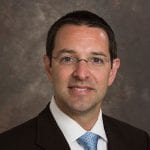
Co-Chair, Networking & External Relations Working Group
Professor, School of Education
Director, Center for Research in Education and Social Policy
hmay@udel.edu
http://www.cresp.udel.edu/
Conduct rigorous research, program evaluation, policy analysis
Henry May, Ph.D. is director of CRESP and a professor in the College of Education and Human Development at the University of Delaware. Prior to joining the UD faculty in 2012, Dr. May spent 14 years as a policy researcher at the University of Pennsylvania, including 10 years as a senior researcher and statistician at the Consortium for Policy Research in Education (CPRE). He has served as principal investigator or co-PI on several large-scale studies in educational settings, many of which involved mixed-methods randomized field trials. Dr. May has taught advanced statistics courses to graduate students at the University of Pennsylvania and the University of Delaware.

Associate Professor, Philosophy Dept. and Biden School, and Director of CSEPP, Philosophy
Director, Center for Science, Ethics & Public Policy
tpowers@udel.edu
http://udel.edu/~tpowers/
Ethics of AI, Machine Ethics, Research Ethics
Thomas M. Powers received a B.A. from the College of William and Mary and a Ph.D. from the University of Texas at Austin. He has been a DAAD-Fulbright fellow at the Ludwig-Maximilians-Universität in Munich, Germany, an NSF research fellow in the School of Engineering and Applied Science at the University of Virginia, and a visiting researcher in the LIP6 (informatics laboratory) at the Sorbonne University in Paris, France. He is currently Associate Professor of Philosophy and the founding director of the Center for Science, Ethics, and Public Policy at the University of Delaware, and a faculty affiliate of the Data Science Institute, the Delaware Biotechnology Institute, the Sociotechnical Systems Center, and the Center for Autonomous and Robotics Systems, all at UD. His research and teaching focuses on ethics in science and in information technologies.

Professor, Marine Science and Policy
art@udel.edu
https://sites.udel.edu/ceoe-art/
Deep Learning, marine robotics, geophysical sensors
Art Trembanis is a professor of oceanographer at the University of Delaware where he develops and utilizes advanced autonomous systems to map and explore oceans and lakes around the world filling in blank spots on the map. For more than 20 years he has specialized in the use and development of advanced technologies for seafloor mapping particularly AUVs (autonomous underwater vehicles) and geophysical sensors used to map and locate shipwrecks and aircraft wreckage. He is a fellow of the Explorers Club and has led seafloor mapping expeditions in locations around the world utilizing . Exploration projects have included discoveries of ancient shipwrecks to modern aircraft and studies of seafloor scour and object detection. He is the Deputy Director for the Center for Autonomous and Robotic systems and co-founder of the Robotic Discovery Laboratory.

Chair, DSI Faculty Council
Co-Chair, Research Working Group
Professor, Computer & Information Sciences
Founding Director, Data Science Institute
wuc@udel.edu
Computational Biology and Bioinformatics Data Science: Protein Informatics, Biological Text Mining and and Natural Language Processing, Ontology and Semantic Computing, Gene-Disease-Drug Knowledge Network Analytics, Artificial Neural Networks and Machine Learning, Cyberinfrastructure
Our Mission
The Institute aims to accelerate research in data science, serving as a nucleating effort to catalyze interdisciplinary research collaborations across fields impacting our society.
